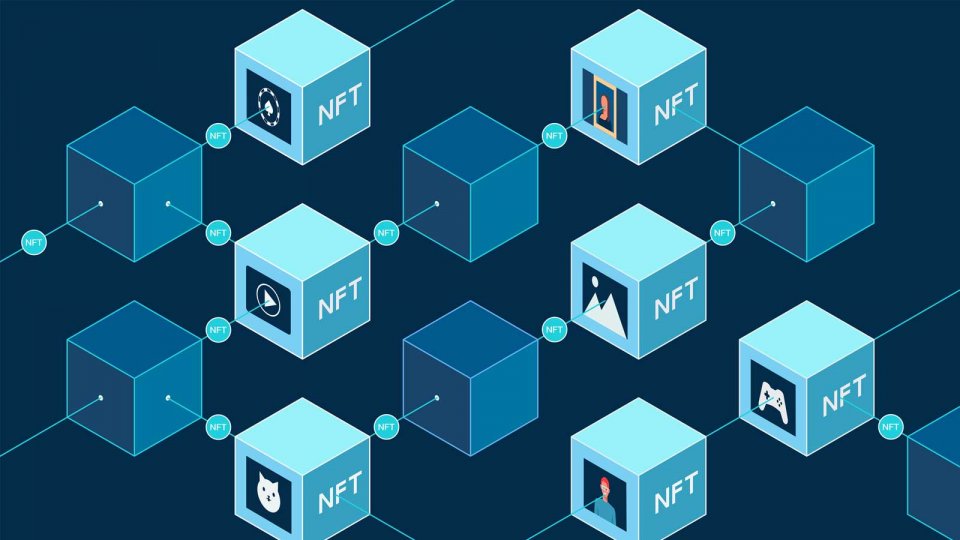What is blockchain technology and how does it works?


What is blockchain technology? If you are still unsure of what this technology is and need a concise, clear answer. This blog is for you. Prepare yourself to explore the remarkable world of blockchain technology.
Blockchain technology definition
Blockchain has emerged as a prominent technological advancement in the past decade, captivating the attention of many. However, amidst the discussions, there is a lack of clarity regarding blockchain’s true nature and functioning. Despite its perceived complexity, the fundamental concept behind blockchain is relatively straightforward, holding the immense potential to revolutionize various industries.
At its core, blockchain is a secure technology that facilitates information sharing. Data is stored in a database, while transactions are recorded in an account book ledger. What sets blockchain apart is its distributed nature, wherein the power to update the blockchain is distributed among the participants or nodes of a computer network, whether public or private. This form of technology, distributed ledger technology (DLT), incentivizes nodes with digital tokens or currency to perform updates.

Blockchain technology definition
By enabling the permanent and transparent recording of data and transactions, blockchain allows for exchanging anything tangible or intangible. A blockchain possesses three key attributes.
Please feel free to contact us for a free consultation: Software Development Services
The significance of blockchain can be understood by examining its key features, which make it an attractive solution in various scenarios.
| Immutable Nature | Blockchain’s immutability provides numerous opportunities for platforms that require unchanging characteristics to enhance functionality in a highly competitive market. For instance, in the supply chain, immutability ensures that packages remain intact during transit. Any attempt to alter package information will trigger an alert within the system.
Transparency is another important aspect that contributes to the importance of blockchain. Public blockchains, in particular, offer transparency by their very nature. This transparency is beneficial for various societal functions, such as conducting elections. Companies can also leverage blockchain to allow end-users to interact with processes with full or partial transparency. |
| Digital Freedom | Blockchain grants individuals’ true digital freedom by eliminating centralized entities that can restrict economic connectivity and infringe upon personal freedoms. Consider traditional banking systems that block transactions or confiscate accounts without valid reasons. By adopting blockchain, one gains independence from any central authority. With blockchain, individuals become their banks, enabling them to access their funds without authorization from third parties. This decentralized approach empowers individuals to fully own and manage their assets, providing the digital freedom underpinned by blockchain technology. |
| Truly Decentralized Services | Decentralized services form the foundation of our future society, catering to various sectors such as asset management and energy management. These services will give people unprecedented access to options currently limited in the market. For example, the music industry can benefit from truly decentralized services, allowing creators and consumers to participate without requiring approval from centralized corporations. |
| Versatile Use-Cases | One of the remarkable attributes of blockchain is its versatility across multiple sectors, including trade finance, banking, government, education, healthcare, and oil, among others. This wide range of use cases demonstrates the immense potential of blockchain technology and its significant impact on various industries. |
| Enhanced Security | Blockchain employs cryptography to enhance the security of data stored on its network. Coupled with its decentralized nature, blockchain offers better security than other systems. Cryptography utilizes complex mathematical algorithms to safeguard data and systems within the blockchain network. Additionally, each block on the network carries a unique hash, ensuring that data cannot be forged or altered by malicious actors or hackers. |
| Cost-Effectiveness | Blockchain is a cost-effective solution when compared to other technologies. Eliminating centralized authorities removes the need for intermediaries, resulting in improved cost efficiency. Blockchain reduces paperwork and associated costs in the supply chain, such as hiring personnel to handle documentation and intermediaries. |
| Improved Efficiency | Lastly, blockchain’s importance lies in its ability to enhance Efficiency. This improvement is achieved through better security measures, removing intermediaries, and overall streamlining processes. Transactions on blockchain networks are faster, often completed within seconds instead of taking weeks, particularly for international transactions. |
Blockchain at TECHVIFY:
Blockchain Development Outsourcing at TECHVIFY
Blockchain and AI: a Powerful Combo in Digital Transformation
Gaining a deeper understanding of how blockchain and other Distributed Ledger Technologies (DLTs) function can be achieved through a more comprehensive exploration.
Information accessed or modified on a blockchain is stored in a “block” alongside other transaction records. These transactions are encrypted using unalterable and distinct hashes, such as those generated by the SHA-256 algorithm. Rather than replacing old blocks, new data blocks are appended to existing ones, enabling continuous monitoring of any changes. As all transactions are encrypted, the records become immutable, meaning any modifications to the ledger can be detected by the network and rejected.
These encrypted data blocks are permanently interconnected, forming a chain, with transactions being recorded in sequential order indefinitely. This sequential recording establishes an audit trail that provides visibility into past versions of the blockchain.

How blockchain technology works
When new data is introduced to the network, a consensus among the majority of nodes is required to verify and confirm the authenticity of the data. This verification process is often based on permissions or economic incentives, known as consensus mechanisms. Once consensus is achieved, a new block is created and added to the chain. All nodes in the network are then updated to reflect the current state of the blockchain ledger.
In a public blockchain network, the first node to successfully prove the authenticity of a transaction receives an economic reward, a process commonly referred to as “mining.”
Blockchain technology development has revolutionized various industries. As companies become aware of the important role advantages of blockchain, they will invest more resources, money, and time into the technology. It’s time to let TECHVIFY unlock the potential of blockchain to help you stay ahead of the technology game.


Table of ContentsI. What is blockchain technology?II. Importance of Blockchain TechnologyIII. How blockchain technology worksConclusion Technological advancements are paving new paths for companies across different sectors, and the logistics industry is no exception. According to a survey by Gartner, 87% of supply chain professionals plan to invest in enhancing the resilience of their platforms. Logistics encompasses a broad and complex array of processes that demand the utmost precision and continuous optimization. Companies can automate and streamline these processes through software product development, significantly boosting efficiency. In this article, we will delve into the realm of logistics software development, exploring its…
26 July, 2024

Table of ContentsI. What is blockchain technology?II. Importance of Blockchain TechnologyIII. How blockchain technology worksConclusion The technology sector is advancing at an unprecedented pace, and the HR landscape is evolving right alongside it. To attract top talent, HR professionals and organizations need to stay ahead of emerging technology hiring trends. This year, we are witnessing significant shifts in hiring practices that will redefine our understanding of the future workforce. According to a Microsoft study, the number of technology jobs worldwide is expected to skyrocket from 41 million in 2020 to an incredible 190 million by 2025. This highlights the tremendous…
25 July, 2024

Table of ContentsI. What is blockchain technology?II. Importance of Blockchain TechnologyIII. How blockchain technology worksConclusion Customized software plays a major role in managing various tasks within the telecom industry. It is essential for allocating numbers to subscribers and managing networks through optimized and AI-enabled routing protocols. Additionally, it aids in detecting fraud with intelligent telecom software development solutions and maintaining detailed subscriber profiles, including comprehensive call recording reports. I. A Quick Look into the Telecommunication Industry The telecommunications industry enables the global exchange of information in the 21st century. Key players in this sector include cable and satellite companies, wireless…
24 July, 2024


Thank you for your interest in TECHVIFY Software.
Speed-up your projects with high skilled software engineers and developers.
By clicking the Submit button, I confirm that I have read and agree to our Privacy Policy